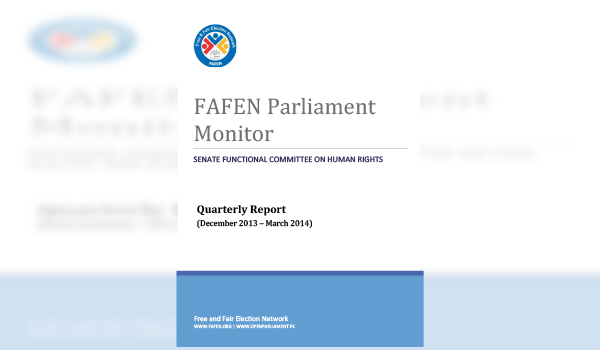The Pakistani state is responsible to protect citizens’ rights both as a constitutional duty and by virtue of having ratified/signed international human rights conventions; however, the country struggles with human rights violations more than sixty years after independence.
The Constitution awards equal rights to citizens regardless of race, color, sex or religion entitling them to, among other things, security, freedom of speech and information, profession of religion and protection from laws that are formed in contradiction of fundamental rights. However, these contradictions do exist in other bodies of law, such as the Pakistan Penal Code, effectively facilitating discrimination and human rights abuses against some communities.
During the reporting period, polio workers were attacked in different parts of the country, a bus carrying Shia pilgrims was bombed in Quetta, and mass graves discovered in Khuzdar, Balochistan in January 2014. A gang-rape victim committed self-immolation after denial of justice on March 13, a Hindu temple was burnt in Larkana, Sindh, on March 15, and an expected seasonal drought and government negligence with regards to distribution resulted in severe hunger and malnutrition in Thar district in Sindh causing the deaths of hundreds of during the period.
A statement was issued by the UN Secretary-General Ban Ki-moon this year condemning reported incidents of terrorist attacks especially the bomb blast in Rawalpindi (January 20, 2014) targeting a joint check-post of the police and the Army and for which the Tehreek-e-Taliban Pakistan (TTP) took responsibility, killings of Shia pilgrims in Balochistan and especially the attacks on polio health workers as the number of polio cases in Pakistan has increased by 57% last year, from 58 cases in 2012 to 91 in 2013.
For complete report click here









